
Social Media for Affiliate Marketing: [Best Platforms + Tips]
Popular Posts
Get access to our Exclusive Offers & Pro Tips
How do you spend most of your time?
Chances are, you will say on online, using social media. Yes, that’s the reality of this digital era. Your daily activities are mostly related to using social media. Whether for entertainment, staying connected, or even managing daily tasks, social media has become a central part of life for people of all ages.
According to a February 2025 report by Global WebIndex, 63.9% of the world’s population uses social media, spending an average of 2 hours and 21 minutes per day on these platforms.
So it’s clear to reach a wider audience online, social media is your best bet. Success in affiliate marketing mostly depends on how many people you can connect with. The broader your reach, the greater your chances of driving traffic and boosting sales.
In this blog, we will discuss how to effectively use social media for affiliate marketing. We’ll also share some practical tips and highlight the best platforms to help you maximize your affiliate earnings.
TL;DR: Social Media for Affiliate Marketing
Social media is a goldmine for affiliate marketers, if you choose the right platform and strategy. Focus on your niche, pick a platform like Facebook, Instagram, YouTube, or TikTok based on your audience, and create engaging, helpful content. Remember, success won’t happen overnight, but with consistent effort, social media can help you grow your affiliate income and personal brand.
Affiliate marketing overview
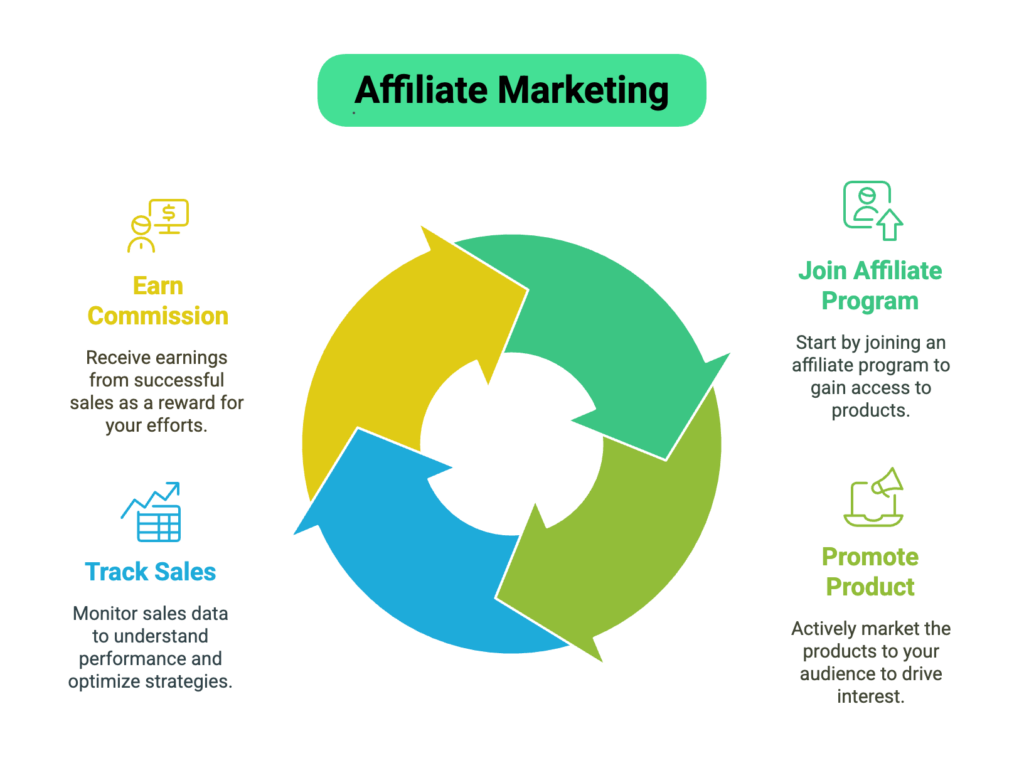
Affiliate marketing is an online business model in which affiliate marketers promote the products and services of other brands. In return, they get paid for each sale generated through their affiliate links.
The affiliate marketing game has four main characters: the merchants, the affiliates, the affiliate networks and the customers. Each plays a vital role in the affiliate marketing process.
To start your affiliate journey, first, you have to join an affiliate network, where you will find various affiliate marketing programs. Choose a program based on your preference (like considering affiliate commission rates). Once you are okay with everything, join and start your affiliate marketing journey like a pro.
What is social media marketing?
We are all familiar with social media marketing. You may see many product promotion posts on multiple social media platforms like Facebook, Instagram, X(formerly Twitter), LinkedIn or YouTube. This is social media marketing in which brands promote their products to an audience through broader advertisements.
Moreover, social media marketing is the process of using social media platforms to promote products, services and content. It is a blessing for affiliate marketers, as they can promote their affiliate links through social media content such as posts, reels, videos, or stories to drive traffic and generate sales or commissions.
Why use social media for affiliate marketing?
We already know that people spend most of their time on social media. So, it’s clear that it’s the best way to reach a wider audience. If you’re still stuck promoting affiliate links on your website only, that means your success possibilities are still in the back seat.
Social media is the easiest and free way to reach a versatile audience who might be interested in the products or services you are promoting. Another big plus is that you can build trust and a regular connection with your audience. People are more likely to buy when they feel like they know and trust the person behind the recommendation.
So, as an affiliate marketer, using social media is a good option to try.
How social media affiliate marketing work?
Affiliate marketing on social media is straightforward. Let’s break it down in the easiest way possible. It will work in the following ways:
- Join an affiliate program
- Get a unique affiliate link
- Promote that link on social media
- Someone clicks
- They buy
- You earn a commission.
Now, let’s make it more practical.
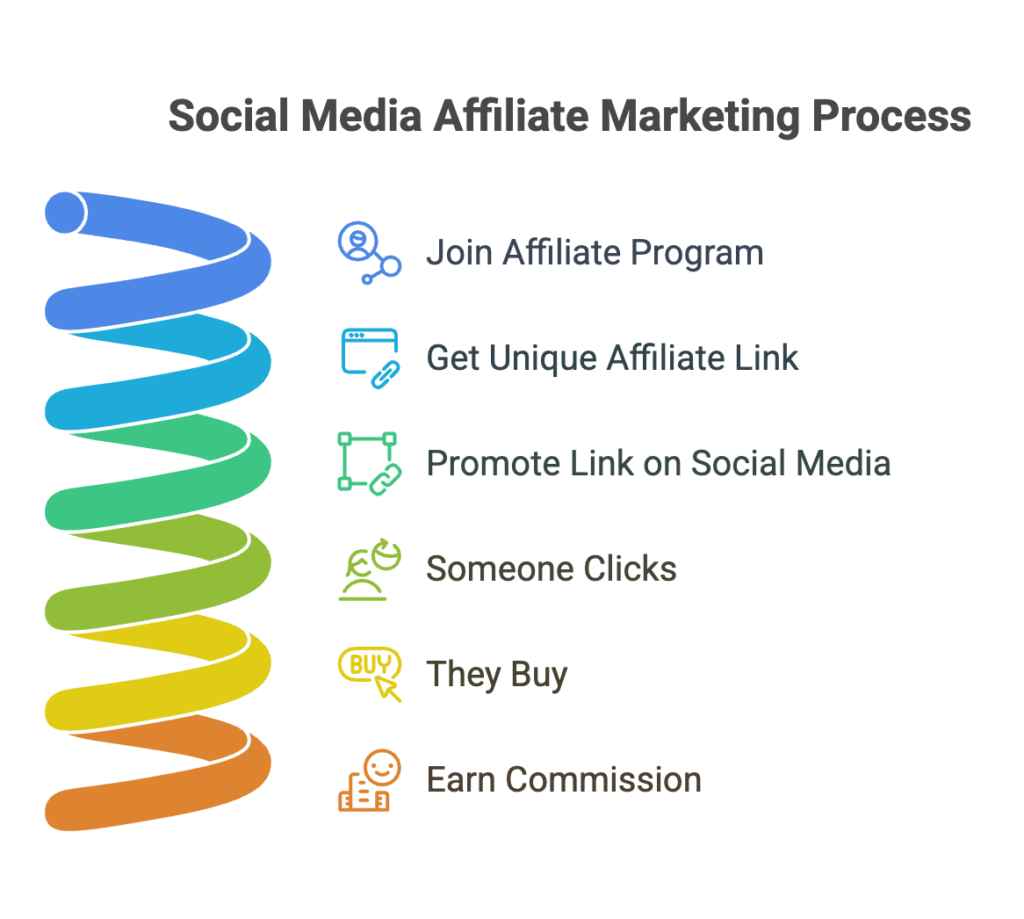
Suppose you’re promoting a haircare product. You post a short video showing how you use it, discuss the results, and include your affiliate link in the caption, bio, or swipe-up. When someone clicks your link and makes a purchase, you get the commission.
You can use any type of content for promotion, such as reels, stories, carousels, product reviews, tutorials, or even memes; there is no restriction. The key is to create content that feels natural and genuinely helpful. Your approach needs to feel like people are getting a recommendation from a friend, as they are familiar with possible online scams.
That’s how social media affiliate marketing works. It’s all about trust, connection, and value.
Best social media platform for affiliate marketing in 2025
You already know about affiliate marketing, social media marketing and how social media marketing works on affiliate marketing. Now, it’s time to introduce you to the best social media platform for affiliate marketing in 2025.
We’ve listed the top platforms based on popularity, but not all platforms work the same way. Some are great for visuals, others for long-form content or short videos. Let’s explore the most effective platforms where affiliate marketers get real results.
YouTube
YouTube is the #2nd largest search engine, with over 2.7 billion monthly active users. That’s making it a popular choice for affiliate marketing to connect with a wider audience. People come to YouTube looking for solutions, product reviews, tutorials, unboxing, exactly the kind of content that affiliate marketers can shine in.
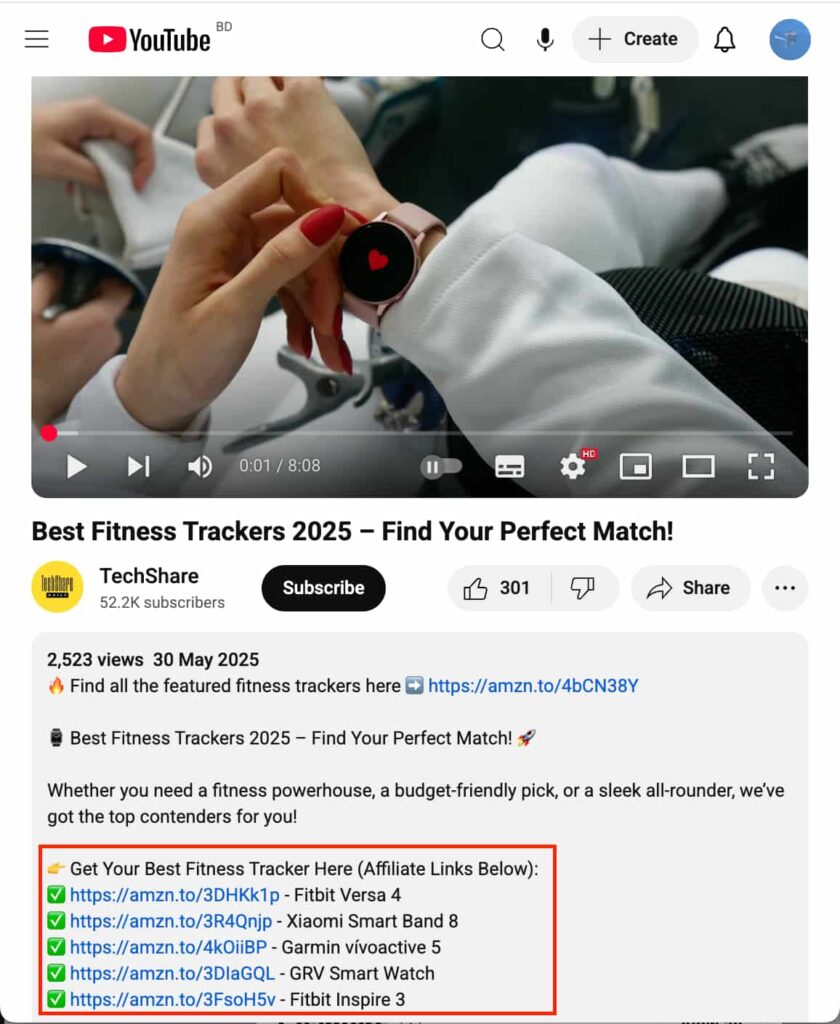
To succeed as an affiliate marketer in this platform you have to understand the content type, which will be perfect to attract your audience. Your content must need to be informative, educational, engaging and fun.
Best YouTube content for promoting affiliate links:
- Product reviews
- Tutorials and how-to videos
- Listicles (e.g., “Top 5 fitness gadgets”)
- Unboxings and demos
Pro tip: Add your affiliate links in the video description and mention them in your video to encourage clicks. YouTube videos rank on Google, too!
Get access to our exclusive offers and pro tips!
Facebook is the most popular social media platform for everyone from the young to the oldest. With over 3 million active users, 75.8% of affiliate marketers use Facebook to promote affiliate products.
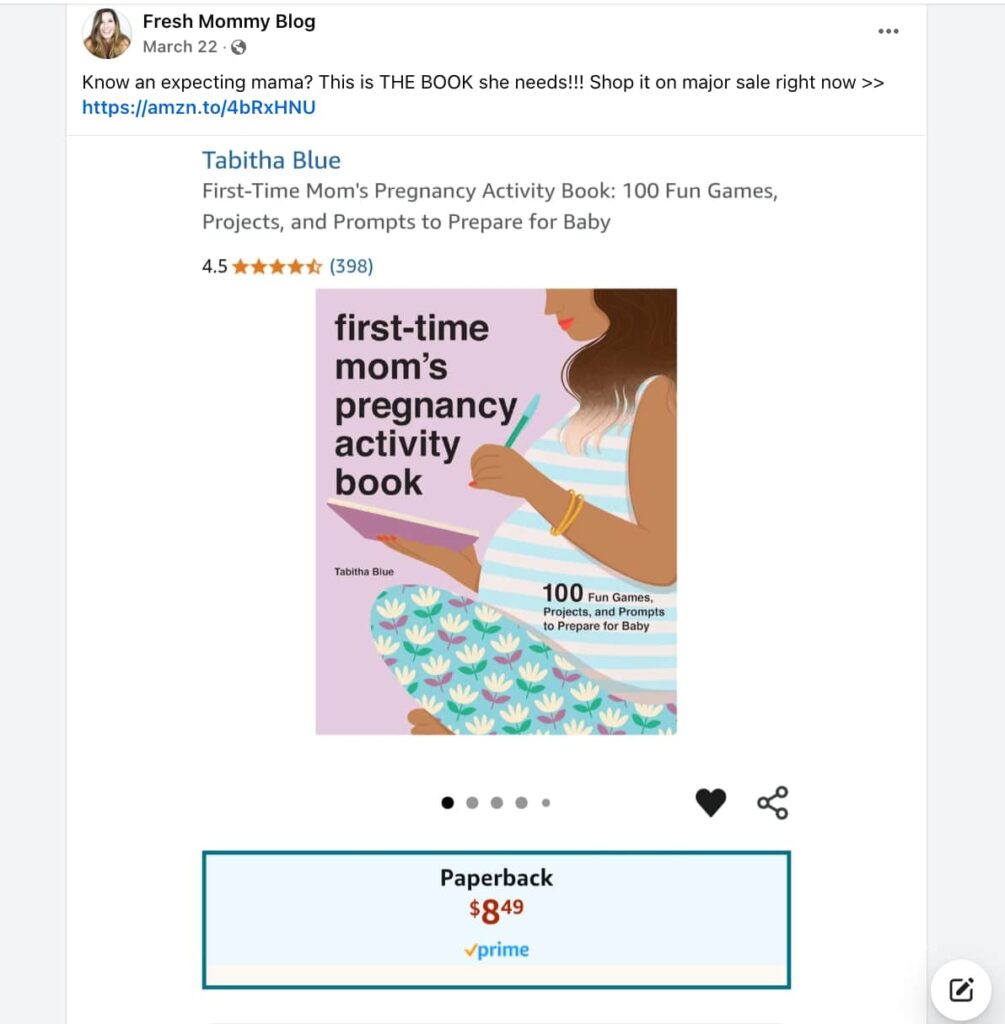
Facebook is more than just a social feed; it’s a group, communities, and marketplace all in one. You can tap into niche audiences through Facebook Groups or engage your followers with relatable posts.
This platform is best for broad and general-interest niches, like fashion, health care, baby products, gym equipment, clothing, education, musical instruments, and everything else. Though this platform lets you reach a wider audience, standing up here is very challenging. You will find many of your competitors who are promoting the same products as yours.
So, to build brand recognition and engagement here, you need to create content that is visually appealing and helpful for the audience.
Best Facebook content for affiliate links:
- Facebook posts with personal stories
- Product recommendations in groups
- Facebook Lives for product walkthroughs
- Short videos or reels
As Facebook is the place for storytelling, focus on storytelling. People love real experiences more than direct promotions. Build a community and earn their trust.
X (Twitter)
X, formerly Twitter, is a popular social media platform with over 500 million monthly users. It is fast and text-based, and an amazing option for building a personal brand. If you love sharing quick thoughts or tips or engaging in trending conversations, this platform can work really well for affiliate marketing.
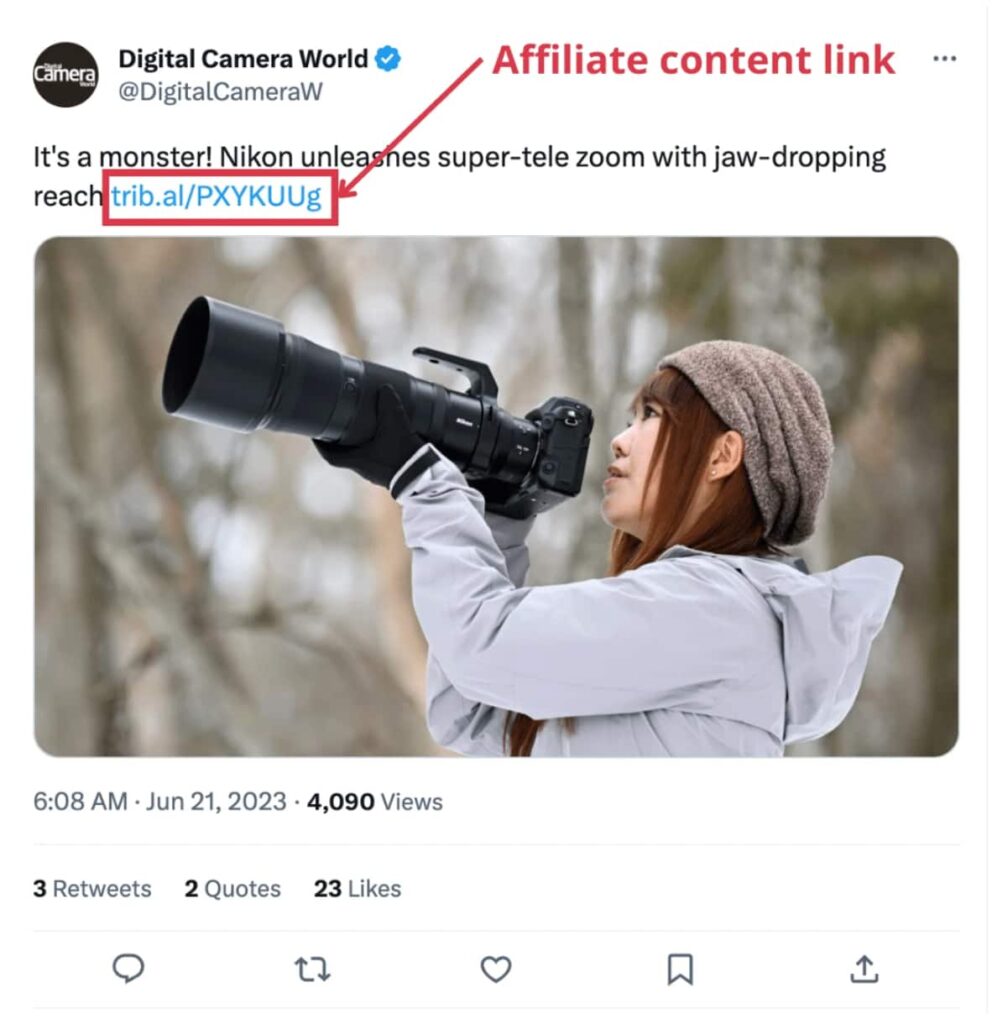
X has a different audience base than Facebook and Instagram; most users are well-educated and tech-heavy. On this platform, you have to promote products with very limited characters. For some users, the post limit is 4,000 characters. Also, this platform is not suitable for promoting any kind of product. You can promote consumer products like laptops, telephones, and digital cameras.
Best Twitter Content for Affiliate Links:
- Short, catchy tweets with product benefits
- Thread-style product reviews or tutorials
- Trending hashtag participation with relevant affiliate links
- Quote tweets linking to your blog or landing page
- Eye-catching visuals or GIFs with quick product highlights
Twitter/X isn’t always link-friendly, so don’t overdo it. Focus more on building your voice and credibility.
If your target audience is younger, Instagram is the right place for you. Younger audiences are innovative and creative and love visual content. Instagram lets you show your affiliate content in an engaging and appealing way with images and videos.
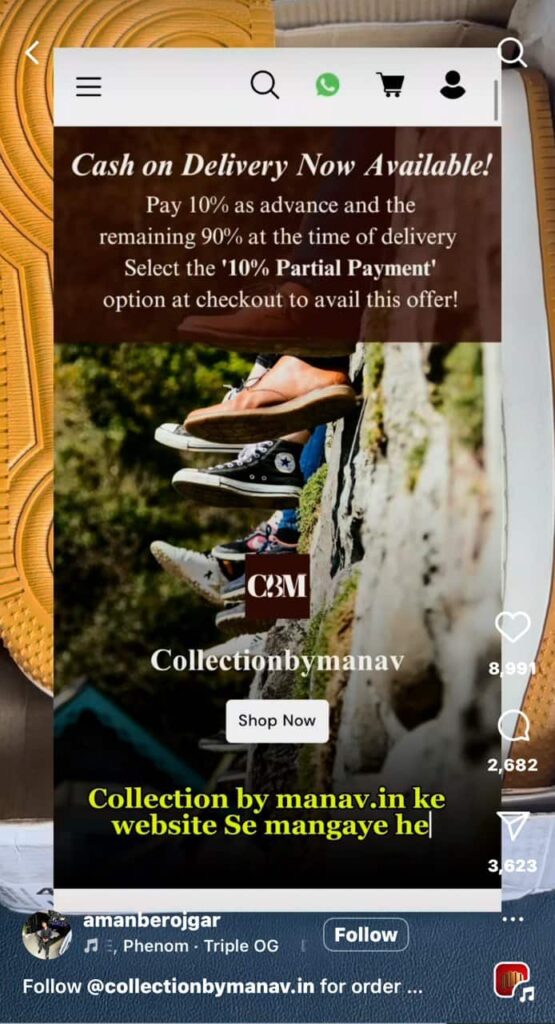
Instagram has a super organic reach compared to other social media platforms, and if your niche involves beauty, fashion, travel, food, or lifestyle, it is a goldmine. This social media platform makes it easy for customers to purchase the products you promote within the app, with features like direct product links in stories and posts.
Best Instagram content for affiliate links:
- Reels with product demos
- Story shoutouts with link stickers
- Carousel posts with product highlights
- Live streams
- Aesthetic photos with value captions
Pro tip: You can update the link in your bio using a tool like Linktree or Beacons to feature multiple affiliate products simultaneously.
Click here to know how to do affilaite marketing without showing your face.
Pinterest is an all-in-one social media platform perfect for affiliate marketers focusing on creative products. It is basically a visual search engine. With millions of active users, search here to generate ideas and inspiration for different arts and designs. This platform is fit for creative niches like arts and crafts, DIY, and home decor. It allows you to build relationships with a larger and engaging audience.
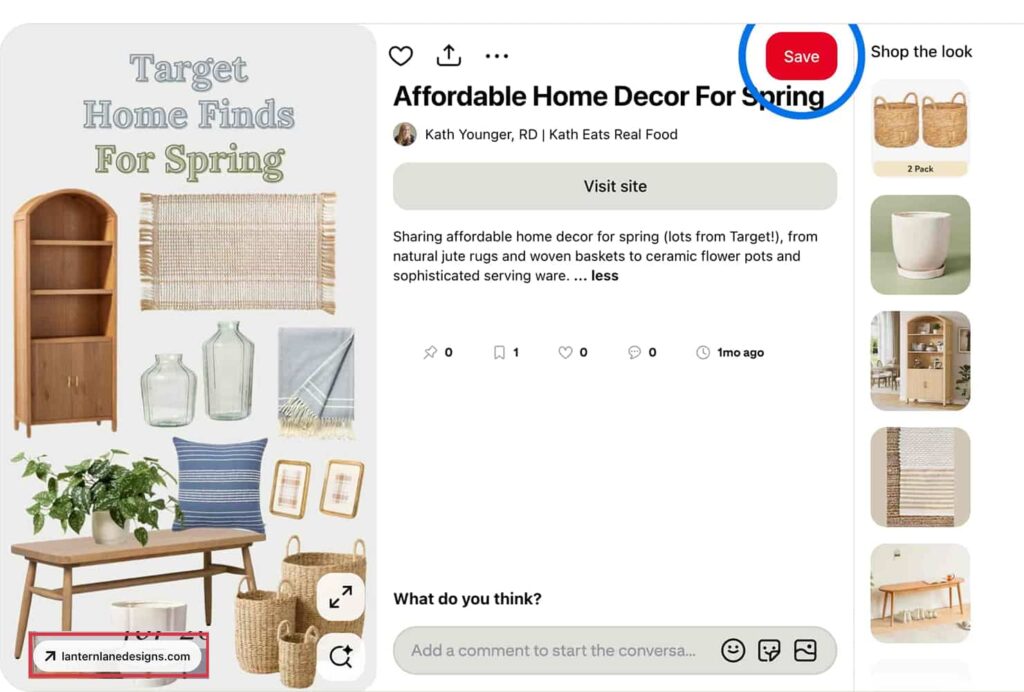
Affiliate marketers can use Pinterest to attract organic searches. For example, Google also prioritizes imagery searches for visual subjects. If your Pinterest content is optimized, your post will show in the SERP for the specific queries.
Best content for affiliate links:
- Infographics
- Product roundups
- Step-by-step guides
- Pin images that link directly to affiliate blogs or landing pages
Pro tip: Use keyword-rich pin descriptions and attractive visuals. Pinterest traffic can keep bringing in affiliate clicks for months (even years)!
TikTok
TikTok is one of the most viral social media platforms, with over 1.7 billion monthly active users. It’s a popular platform for the young, fun-loving generation. This platform is especially famous in the affiliate marketing world for engaging the global audience with attractive video content. It’s become a go-to social media platform for viral and trendy niches, from skincare to lifestyle products or anything viral heck’s.
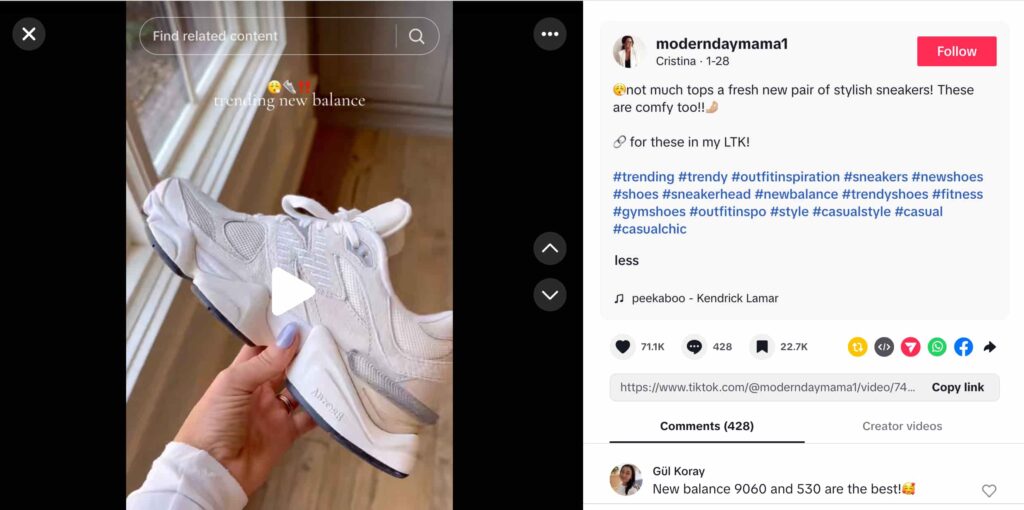
TikTok’s massive reach, super-engaged audience, and low competition make it hard for affiliate marketers to ignore. If you’re serious about growing fast, TikTok can definitely open doors.
Yes, you can upload videos up to 10 minutes long, but short and snappy content performs way better here. That means quick product demos, funny reactions, or little hacks people love to share.
Here’s the honest part: creating regular content for TikTok takes effort. But it can really pay off if you’re ready to put in the work. A good strategy is to build views and grow your following, then direct people to a freebie or lead magnet in your bio, and later sell through your email list.
Best content for affiliate links:
- Quick tutorials
- Product “hacks” or reviews
- “TikTok made me buy it” type videos
- Behind-the-scenes or lifestyle clips
Just a heads-up: you’ll need at least 1,000 followers or a Business account to add a clickable link to your TikTok bio. So start building first, and the link clicks will come later!
AzonPress the best affiliate marketing plugin for WordPress
AzonPress is the best WordPress affiliate marketing plugin for affiliates who want to boost clicks and conversions.
With customizable product display boxes, geo-targeting, auto product updates, and zero API dependency, it lets affiliate marketers showcase products and manage links, all from one intuitive dashboard.
Key features of AzonPress include:
- Customizable comparison tables
- Best-seller lists and product grids
- Zero API integration
- Customizable layouts
- Link management
- User-friendly interface
- Gutenberg integration
- Geotargeting
- Advanced reporting
- Geolocation-based redirection
- Shortcode support
- Responsive and mobile-friendly layouts
You can use AzonPress to promote affiliate links on social media in the following ways:
- First, design a clean product comparison table or a single product box (super helpful for tech, gadgets, kitchen tools, etc.).
- Then embed this table in a blog post.
- Next, grab the blog post link and promote it on your social media platforms.
That’s all!
Manage links, create product tables, and comparison tables, and increase your affiliate revenue
Which is the best social media platform for affiliate marketing?
There is no single platform that is best for affiliate marketing. It all depends on your niche, targeted audience and especially the products you are promoting. But choosing the right one is essential for hosting a successful affiliate marketing campaign.
We have already explained the top social media platforms that can effectively boost your affiliate earnings. Here is a quick comparison table of these social media platforms for affiliate marketing, which may help you make a swift and informed decision.
| Platform | Monthly Active Users (2025) | Content Type That Works Best | Link Sharing Option | Best For | Difficulty Level |
|---|---|---|---|---|---|
| YouTube | 2.7+ Billion | Long-form videos, reviews, tutorials | In description | Tech, education, beauty, in-depth reviews | Medium to high |
| 3+ Billion | Posts, stories, lives, group shares | In posts, bios, stories | Communities, family-oriented content | Low | |
| 2.4+ Billion | Reels, carousels, stories, photos | Link in bio, story links | Fashion, travel, lifestyle, beauty | Medium | |
| TikTok | 1.7+ Billion | Short videos, product demos, trends | Link in bio (after 1k) | Viral content, Gen Z, entertainment | Medium |
| 482+ Million | Pins, infographics, listicles | Direct in pin or blog | Evergreen niches like decor, food, DIY | Low | |
| Twitter (X) | 550+ Million | Short tweets, threads, link shares | In tweets, bio | News, finance, tech, trending topics | Medium |
Ready to use social media for affiliate marketing?
Using social media for affiliate marketing is super rewarding if you start with the right platform. Take time to build your affiliate marketing strategy first. Define your niche, know your targeted audience, and the products you’re promoting. Once it’s sorted, choose a social media platform that fits your goals best.
If your targeted audience is Gen Z, then it will be better to promote your product on platforms like Instagram or TikTok to grab their attention. Just ensure you create engaging content that resonates with your audience and boosts your earnings.
However, affiliate marketing has not an overnight success story; it takes time and efforts to achieve ultimate success. The good news? Social media gives you the stage to grow and build your own brand identity. Use that to your advantage and keep showing up for your audience.
Hope, this article may help you find the best social media platform for your affiliate marketing campaign. Visit our website for more affiliate marketing tips and tricks.
All the best for your affiliate marketing efforts.
FAQ
1. What social media is best for affiliate marketing?
It depends on your niche, but Instagram, YouTube, TikTok, and Facebook are top choices for high engagement and audience reach.
2. How to use social media for affiliate marketing?
Create valuable, engaging content around affiliate products and share your affiliate links through posts, stories, bios, or blog links.
3. Do you need social media for affiliate marketing?
Not necessarily, but it helps boost visibility, engagement, and trust, especially when starting without an email list or blog.
4. What’s the easiest social media platform for affiliate marketing?
Instagram and Facebook are beginner-friendly with simple posting tools and strong audience engagement, making them great starting points for affiliate marketing.
5. What type of content performs best for affiliate links?
Honest reviews, quick tutorials, product comparisons, and personal recommendations tend to drive the most clicks and engagement.
Read Similar Blogs
We build lasting partnerships to boost and manage revenue growth





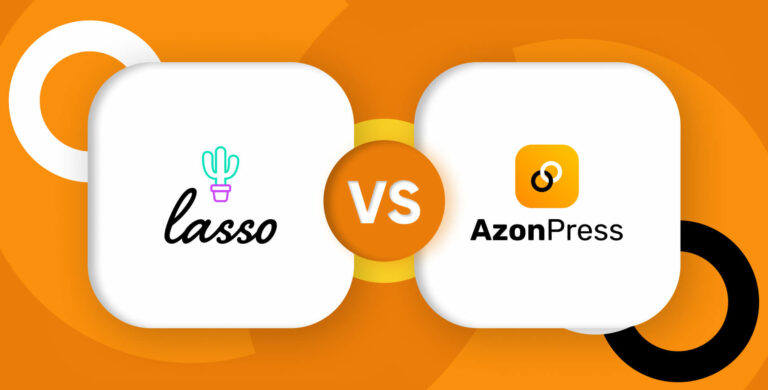
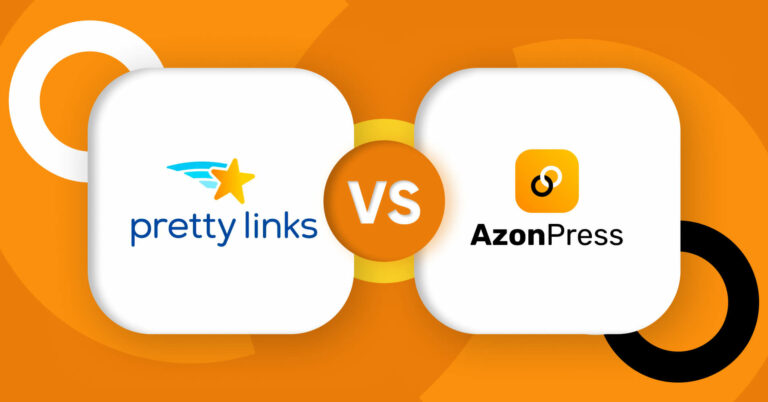
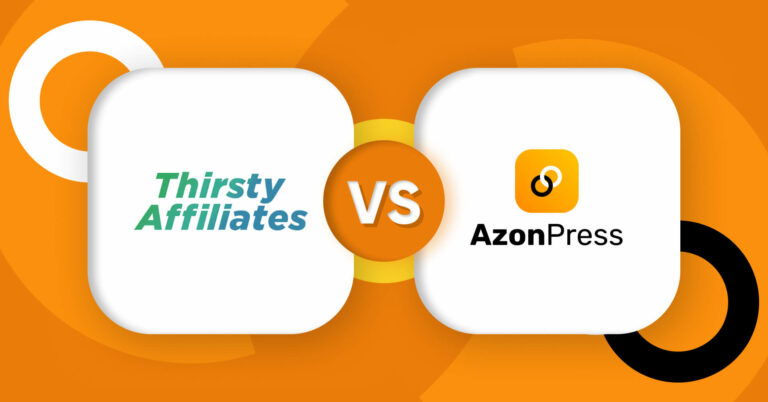





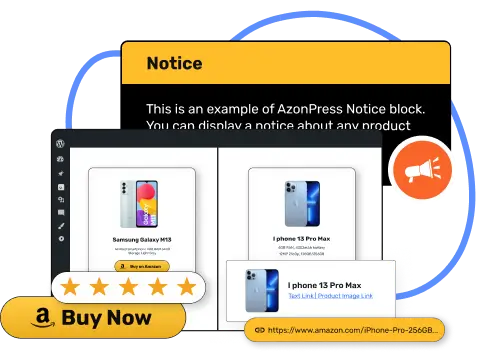





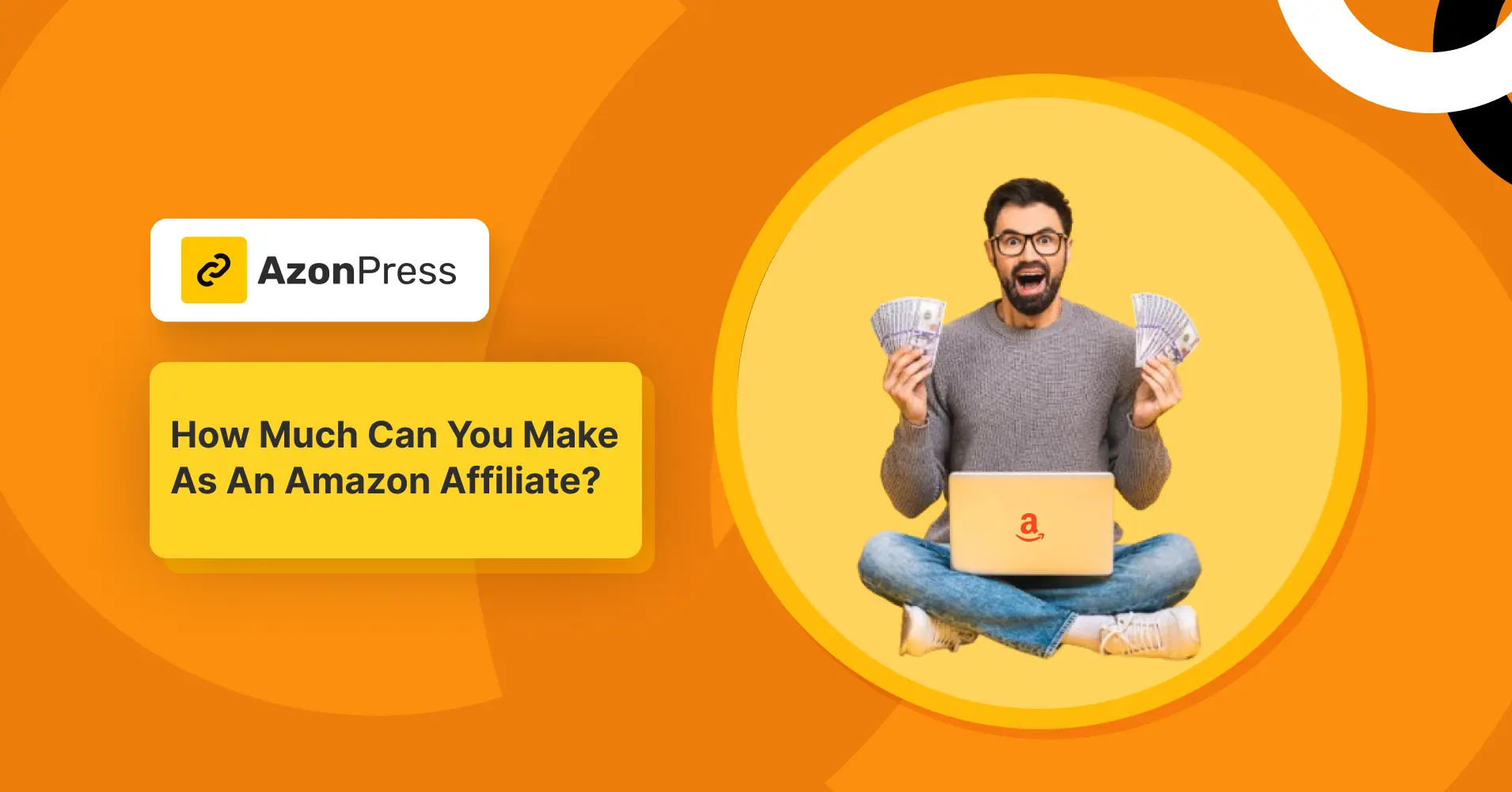

Leave a Reply